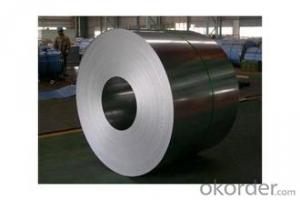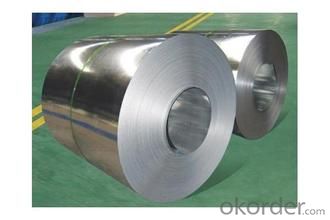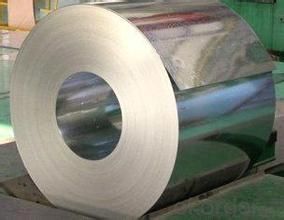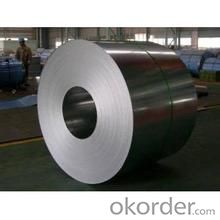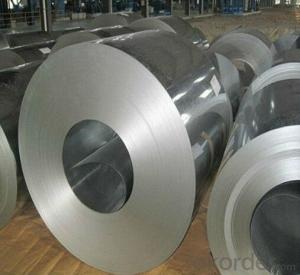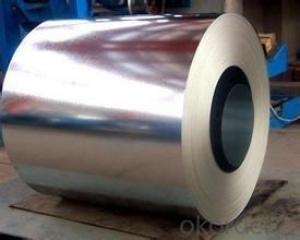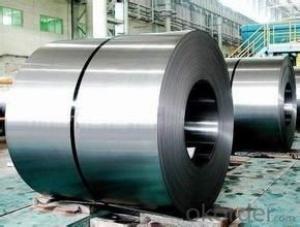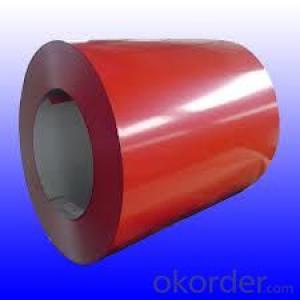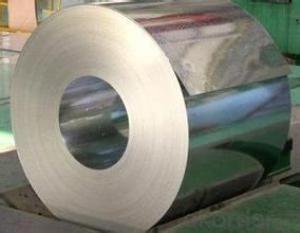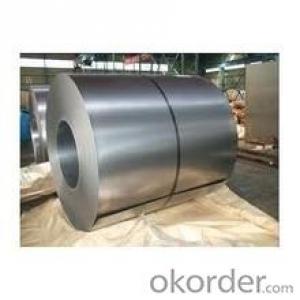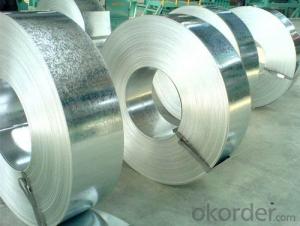Excellent Hot-Dip Galvanized/ Aluzinc Steel in good quality
- Loading Port:
- Tianjin
- Payment Terms:
- TT OR LC
- Min Order Qty:
- 30 m.t.
- Supply Capability:
- 5000000 m.t./month
OKorder Service Pledge
OKorder Financial Service
You Might Also Like
Description:
Hot-dip galvanized steel coils are available with a pure zinc coating through the hot-dip galvanizing process. It offers the economy, strength and formability of steel combined with the corrosion resistance of zinc. The hot-dip process is the process by which steel gets coated in layers of zinc to protect against rust. It is especially useful for countless outdoor and industrial applications.
Specification:
1.Mateials:SGCC,DX51D / DX52D /S250,280GD
2.Size:width:600-1250mm(900mm,1215mm,1250mm,1000mm the most common)
thickness:0.15-2.0mm
length:1000-6000mm,as your require
3.Zinc coating :60-180g( as required)
4.Coil id:508mm
5.Coil weight: 3-5MT(as required)
6. Surface:regular/mini/zero spangle, chromated, skin pass, dry etc.
Applications:
Galvalume Coil widely used for roofing products, It is also the ideal base material for Prepainted Steel Coil.
1. roofing
2. gutters
3. unexposed automotive parts
4. appliances
5. furniture
6. outdoor cabinetry
Images:
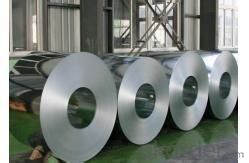
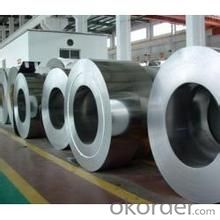
- Q: How are steel coils used in the manufacturing of storage tanks?
- Steel coils are used in the manufacturing of storage tanks as they are rolled into cylindrical shapes and welded together to form the tank's body. The coils provide strength and durability to the structure, ensuring the tank can withstand the pressure and weight of stored materials.
- Q: What are the different coil packaging materials used for steel coils?
- Different materials are used for packaging steel coils, each with its own unique properties and benefits. Some of the most commonly used materials are as follows: 1. Stretch film is a flexible material that tightly wraps around the coil, providing protection against dust, moisture, and scratches. 2. Steel strapping is a strong and durable option that ensures the coils remain tightly bound during transportation or storage, thanks to its high tensile strength and resistance to breakage. 3. Plastic strapping, on the other hand, is a lightweight and cost-effective alternative to steel strapping. It offers good shock absorption and is resistant to rust and corrosion, making it suitable for smaller or lighter steel coils. 4. Paperboard is an environmentally friendly packaging material that provides a protective layer against dust and minor impacts. It also allows for slight breathability to prevent moisture buildup. 5. Wooden crates are commonly used for large or heavy steel coils, as they offer sturdy support and protection during handling, transportation, or storage. 6. Corrugated cardboard is a versatile and lightweight material suitable for smaller steel coils. It provides cushioning and protection against minor impacts, and it is easily recyclable. The choice of packaging material for steel coils depends on factors such as coil size and weight, transportation requirements, and the desired level of protection. Each material has its own advantages and should be selected based on the specific needs of the steel coil packaging.
- Q: Is it just because brass is reloadable? But what makes it reloadable? What does brass bring to the equation that the steel cased ammo can't do?
- Brass is slightly softer than annealed steel. Both can be reloaded, once or maybe even twice. But STEEL has a tendency to WORK HARDEN, becoming brittle. Which is why it's used for tools and other applications where work hardening is a plus. It's actually designed to do that. Brass does not work harden, because it is a different sort of metal. That's the main reason.
- Q: What are the common methods of storing steel coils in warehouses?
- The common methods of storing steel coils in warehouses include stacking them on pallets or racks, using coil cradles or coil saddles to hold them in place, or utilizing specialized coil storage systems such as coil racks or coil cranes.
- Q: How are steel coils protected from chemical damage?
- Steel coils are typically protected from chemical damage through various methods such as applying protective coatings or using barrier films. These protective measures act as a barrier between the steel surface and any potentially corrosive chemicals, preventing direct contact and minimizing the risk of chemical damage.
- Q: What are the different grades of steel used in coils?
- There are several different grades of steel used in coils, including low carbon steel, medium carbon steel, high carbon steel, and alloy steel. Each grade has specific properties and characteristics that make it suitable for various applications, such as automotive, construction, or manufacturing industries. The grade of steel chosen for coil production depends on factors such as strength requirements, formability, corrosion resistance, and cost considerations.
- Q: I want to make a chess set out of stainless steel, but I'm not sure what type of mold I need or where I can go to have the steel melted and molded for me. Any ideas? I live in Southern, NJ.
- I'll buy one. You'll have to machine it from blocks... You could invest in a milling machine - they are like drill presses and lathes all together and more... If you hook it up to your computer, you can do a CNC milling, where you can get really creative and finely detailed. Stainless is heavy and hard, so it'll go through your bits, and you should use the super duty bits as well. I have always wanted an SS chess set, I made a board out of leather. It's really super awesome, just need your pieces now. Or make mine from Plutonium, or Tungsten Carbide.
- Q: How are steel coils used in the manufacturing of intake manifolds?
- Steel coils are typically used in the manufacturing of intake manifolds as the primary material for forming the manifold's structure. These coils are shaped and cut into specific dimensions to create the necessary components, such as runners and plenums, which help regulate the flow of air and fuel mixture into the engine. The steel coils are often subjected to additional processes, including welding, machining, and surface treatments, to ensure the final intake manifold meets the required specifications and performance standards.
- Q: How are steel coils inspected for yield strength?
- Steel coils are inspected for yield strength through a series of testing methods. The most common and widely used method is the tensile test. In this test, a small sample is taken from the steel coil and subjected to a controlled load until it reaches its yield point. During the tensile test, the sample is gradually stretched until it deforms and ultimately breaks. The load and elongation data are continuously recorded during this process. The yield strength is then determined by identifying the point on the stress-strain curve where the material begins to exhibit plastic deformation or permanent elongation. Another method used to inspect steel coils for yield strength is the hardness test. Hardness is often correlated with yield strength, and therefore, a hardness test can provide an estimation of the material's yield strength. This test involves measuring the resistance of the steel coil's surface to indentation or penetration using instruments like a Rockwell or Brinell hardness tester. Additionally, non-destructive testing methods such as ultrasonic testing and magnetic particle inspection can also be employed to evaluate yield strength. Ultrasonic testing involves the use of high-frequency sound waves to detect any internal defects or inconsistencies in the material's structure. Magnetic particle inspection, on the other hand, relies on the application of magnetic fields and the use of magnetic particles to identify surface cracks or defects. Overall, various testing methods are available to inspect steel coils for yield strength. These methods provide manufacturers and inspectors with valuable information about the quality and performance capabilities of the steel, ensuring that it meets the required standards and specifications.
- Q: What are the different coil winding methods used for steel coils?
- Steel coils can be wound using various methods, each having its own benefits and uses. 1. Layer winding is the most commonly employed technique for steel coils. It entails winding the steel strip or sheet in concentric layers to create a coil. This method is suitable for narrow and thin strips, offering excellent coil stability and strength. 2. Cross winding involves winding the steel strip in a crisscross pattern, alternating the direction of each layer. This ensures even stress distribution and prevents coil instability. Cross winding is typically used for wider or thicker steel strips. 3. Spiral winding is utilized for large or heavy steel coils. The steel strip is wound in a spiral pattern, gradually increasing the coil's diameter. This method facilitates easy handling and transportation while providing stability and preventing coil collapse. 4. Toroidal winding is employed to produce toroidal or donut-shaped coils. The steel strip is wound in a circular path, with each layer placed inside the previous one. Toroidal winding is commonly utilized in applications like transformers, where specific coil shape and size are required. 5. Interleaved winding involves intertwining two or more steel strips during the winding process. This method is used to create composite coils with varying materials or thicknesses. It enhances strength, stability, and enables customized designs. The selection of a specific coil winding method depends on factors such as strip thickness, width, tensile strength, and desired coil properties. Each method offers unique advantages and is chosen based on the specific requirements of the steel coil application.
Send your message to us
Excellent Hot-Dip Galvanized/ Aluzinc Steel in good quality
- Loading Port:
- Tianjin
- Payment Terms:
- TT OR LC
- Min Order Qty:
- 30 m.t.
- Supply Capability:
- 5000000 m.t./month
OKorder Service Pledge
OKorder Financial Service
Similar products
Hot products
Hot Searches
Related keywords
